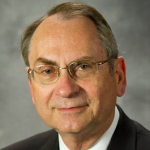The U.S. Supreme Court has set oral arguments in one of the year’s most anticipated cases involving religious liberty and the separation of church and state.
Trinity Lutheran Church v. Pauley, set for arguments April 19, involves a Missouri church denied participation in a state program which offered recycled tires to resurface a playground at its day care and preschool facility on church premises.
The state returned the church’s application citing an article in the Missouri constitution barring any use of money from the public treasury to aid “any church, sect or denomination of religion.”
The 8th U.S. Circuit Court of Appeals rejected arguments that the state violated the church’s rights under the U.S. Constitution. While state officials could include the church’s playground without violating the Establishment Clause, the appellate court determined, the First Amendment does not compel them to do so.
Lawyers for Alliance Defending Freedom and Michael Whitehead, a Southern Baptist attorney with clients including the Missouri Baptist Convention, claimed that excluding churches from a child-safety benefit available to other nonprofits is a form of religious discrimination. The grants fulfill a secular purpose, they argue, and do not advance a particular religion.
The state countered that the question is not whether a state can exclude churches and other religious institutions from a program that otherwise provides benefits to everyone, but instead whether the states are required to violate their own constitutions and choose a church to receive a grant when that means turning down non-church applicants.
Forty-four applicants sought grants the same year as Trinity Lutheran, the state’s response claimed, but just 14 were granted due to limited funds.
The Ethics and Religious Liberty Commission of the Southern Baptist Convention filed a friend-of-the-court brief on behalf of not only Trinity Lutheran Church but also because of an “overall trend of churches and religious actors being excluded from participating in government programs.
“This disturbing trend cuts against the values undergirding the Free Exercise, Establishment and Equal Protection Clauses, which protect religion from being treated with hostility,” said the brief filed last April.
The Baptist Joint Committee for Religious Liberty and General Synod of the United Church of Christ weighed in July 5 with a brief defending the state’s position.
“Special treatment of churches in our constitutional tradition, like the special treatment of religion itself, is a means of protecting religious liberty and the freedom and integrity of religious institutions, not a mark of hostility toward or discrimination against religion,” BJC attorneys Hollyn Hollman and Jennifer Hawks argued in the brief.
“It reflects a proper and historic understanding of the relationship between institutions of government and those of religion,” they continued. “Each has distinct funding sources, and each has primary roles and responsibilities that are best maintained through independence from one another.”
The Supreme Court agreed to accept the case more than a year ago. Observers attribute the delay in putting it on the calendar to a desire to wait until a vacancy created by the death of Justice Antonin Scalia can be filled in order to avoid a possible 4-4 tie.
The day before the justices released their April 2017 calendar, Senate Judiciary Committee Chairman Chuck Grassley (R-Iowa), announced that hearings for Judge Neil Gorsuch’s Supreme Court nomination will begin March 20. Hearings are expected to last three or four days.
Previous stories:
ERLC says taxpayer funding of recycled tires on church playground not an establishment of religion
Church playground dispute erupts into battle over separation of church and state
BJC says churches not entitled to taxpayer funds
Supreme Court to consider government funding for faith, and BJC weighs in


